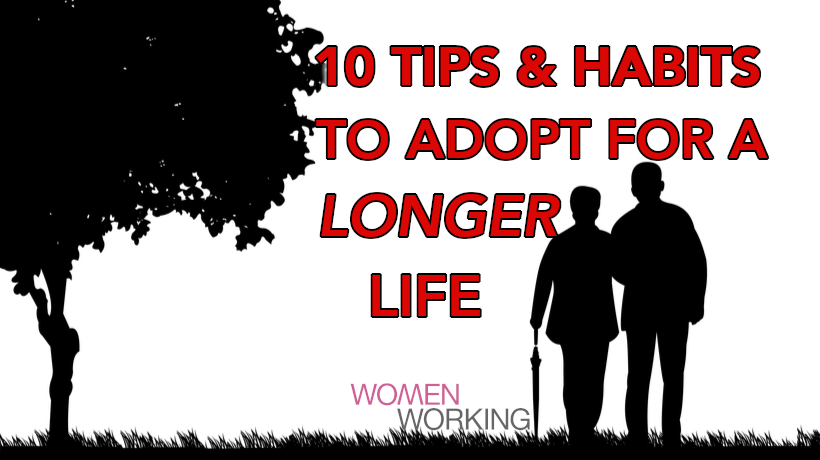While genetics may play a role in life expectancy, you can adopt a few habits and tricks to lengthen your life expectancy. Below are 10 tips and habits to adopt that may increase your lifespan.
Studies referenced in this article were found on PubMed.gov.
Improving your friend circle
Naturally, we are social creatures. Friends may have an influence on how we think and act. OnHealth.com says “picking friends who have healthy habits can lead to healthy habits in yourself.” So, pick good friends who lower your stress levels and make healthy choices to extend your lifespan!
Avoid overeating
One healthy choice is deciding not to overeat. I know, I know. It can be tempting when you have that piece of chocolate cake in front of you. But if you are full, resist the temptation and distract your mind from that delicious temptation.
Alina Petre, MS, RD (NL) writes, “Studies of human populations renowned for longevity also observe links between low-calorie intake, an extended lifespan, and a lower likelihood of disease” Furthermore, she notes that calorie restriction may help to reduce excess body weight and belly fat — which are both associated with shorter lifespans.
Eat plenty of healthy plant foods
It’s not enough to just avoid overeating. It’s also important that you fill your diet with plenty of heart-healthy plant foods. Many studies link a plant-rich diet to a lower risk of premature death, as well as reduced risk of cancer, metabolic syndrome, heart disease, depression, and brain deterioration.
Some studies have also shown a 12-15% lower risk of premature death in those who have adopted vegetarian and vegan diets.
Don’t smoke
Smoking has a lot of negative health effects and may lead to disease and early death. According to John Hopkins Medicine.org, smoking affects coronary arteries and lungs, and smokers have increased rates of cancer and risk of stroke.
Petre says, “Overall, people who smoke may lose up to 10 years of life and be 3 times more likely to die prematurely than those who never pick up a cigarette.”
Avoid chronic stress and anxiety
Anxiety and stress have been proven to decrease your lifespan in many studies. Women who suffer from stress and anxiety are two times more likely to die from heart disease, stroke or lung cancer, Petre says.
If you feel anxious and stressed, remember to take a break. Meditate for ten minutes and breathe. Laughter may also be good medicine for chronic stress and anxiety as it “strengthens your immune system, boosts mood, diminishes pain, and protects you from the damaging effects of stress” according to HelpGuide.org.
Limit alcohol intake
Just like smoking, alcohol can have a negative effect on your lifespan. Overdrinking is linked to liver, heart, and pancreatic disease as well as early death.
Stay physically active
A healthy diet and exercise are important for a longer lifespan. People who hit the 150-minute recommendation were 28% less likely to die early. What’s more, that number was 35% for those who exercised beyond this guidance, according to Petre.
Have a set sleep schedule that works for you
Sleep is a basic human need for us to function properly. Develop a regular and routine sleeping pattern. It’s also not enough to have a routine for sleeping, it is also advised to sleep 5-7 hours a night (and more or less depending on age).
Too little sleep may make us irritable and may also be linked to inflammation and increased risk of diabetes, heart disease, and obesity.
Drink coffee or tea
Good news for coffee and tea lovers! Coffee and tea are linked to a decreased risk of chronic disease according to Petre. Some substances in green tea called polyphenols and catechins may help to decrease the risk of cancer, diabetes, and heart disease.
A similar effect occurs with coffee — which helps to lower the risk of Type 2 diabetes, heart disease, and certain cancers. However, Petre warns that too much caffeine may also lead to feelings of anxiety and insomnia, symptoms that are the opposite of what you need for a longer life (stress-free and sleep)!
Prioritize your happiness
Who doesn’t want to feel happy when living life? A review of 35 studies showed that happy people may live up to 18% longer than their less happy counterparts. So, not only does being happy helps your mood at the moment, being happy will pay off in the long run.
Sources:



